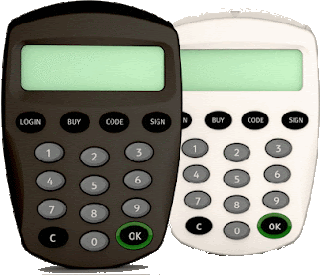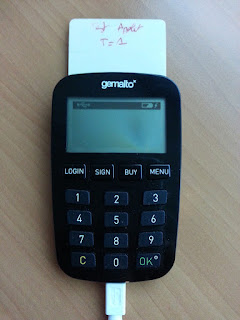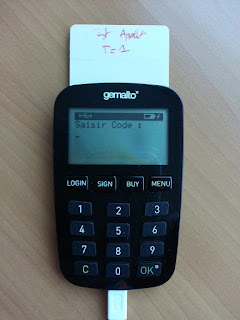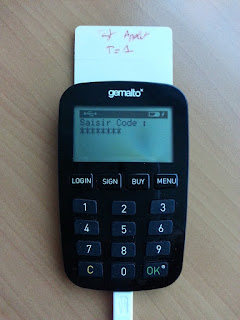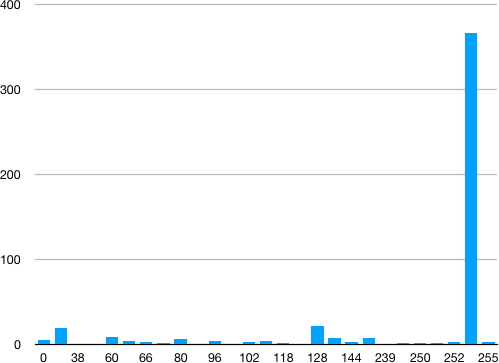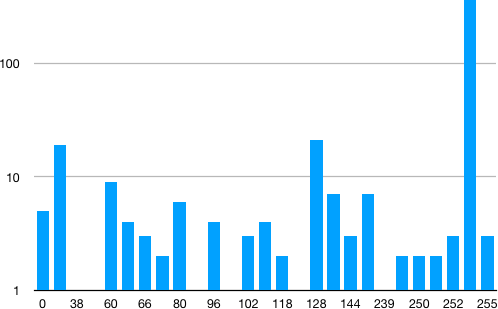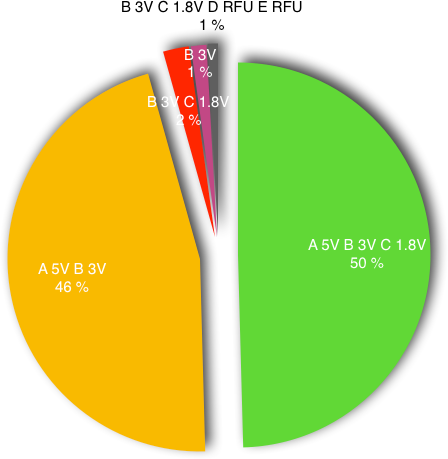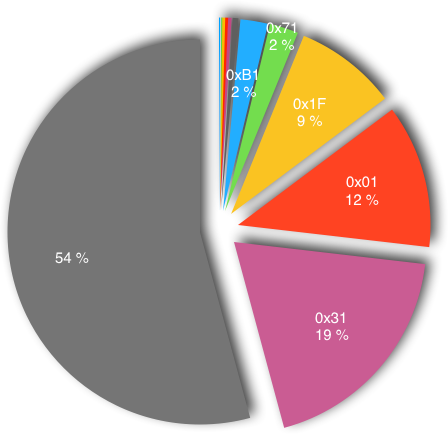Debug a smart card application on Sierra
This article is an update of the previous article "Debug a smart card application on Yosemite".
New logging scheme
Apple made some changes in the way system, and application, logs are managed.Now to get the log messages from a process use the command:
$ log stream
You will get a lot of messages. It is possible to restrict the messages from a particular process using predicates.
Logs from com.apple.ifdreader
To get only the log messages from the process com.apple.ifdreader use:$ log stream --predicate 'process == "com.apple.ifdreader"'
For example I get something like:
$ log stream --predicate 'process == "com.apple.ifdreader"' Filtering the log data using "process == "com.apple.ifdreader"" Timestamp Thread Type Activity PID 2017-11-06 16:11:21.092392+0100 0x751b1 Error 0x0 260 com.apple.ifdreader: (CryptoTokenKit) [com.apple.CryptoTokenKit.token] <private>: failed to transmit APDU 2017-11-06 16:11:22.173066+0100 0x74b9d Error 0x800000000000af43 260 com.apple.ifdreader: (CryptoTokenKit) [com.apple.CryptoTokenKit.token] <private>: failed to transmit APDU 2017-11-06 16:11:23.253418+0100 0x734eb Error 0x0 260 com.apple.ifdreader: (CryptoTokenKit) [com.apple.CryptoTokenKit.token] <private>: failed to transmit APDU
APDU logging
It is still possible to log the APDU sent to the card and the response received. Use the same command as before:$ sudo defaults write /Library/Preferences/com.apple.security.smartcard Logging -bool yes
You need to connect the reader after executing the above command to get the results.
For example I now get something like:
$ log stream --predicate 'process == "com.apple.ifdreader"' Filtering the log data using "process == "com.apple.ifdreader"" Timestamp Thread Type Activity PID 2017-11-06 16:13:58.514542+0100 0x7868a Activity 0x8000000000000511 260 com.apple.ifdreader: (CoreFoundation) Loading Preferences From System CFPrefsD 2017-11-06 16:13:58.514929+0100 0x7868a Activity 0x8000000000000512 260 com.apple.ifdreader: (CoreFoundation) Sending Updated Preferences to System CFPrefsD 2017-11-06 16:13:58.516120+0100 0x7868a Default 0x0 260 com.apple.ifdreader: (CryptoTokenKit) [com.apple.CryptoTokenKit.APDULog] logging slot Gemalto PC Twin Reader 2017-11-06 16:14:06.444894+0100 0x734eb Default 0x0 260 com.apple.ifdreader: (CryptoTokenKit) [com.apple.CryptoTokenKit.APDULog] card in 2017-11-06 16:14:06.508793+0100 0x734eb Default 0x0 260 com.apple.ifdreader: (CryptoTokenKit) [com.apple.CryptoTokenKit.APDULog] ATR: 3b 7f 96 00 00 80 31 80 65 b0 85 03 00 ef 12 0f fe 82 90 00 2017-11-06 16:14:06.541594+0100 0x76ff0 Default 0x800000000000afe6 260 com.apple.ifdreader: (CryptoTokenKit) [com.apple.CryptoTokenKit.APDULog] T=0 2017-11-06 16:14:06.542311+0100 0x76752 Default 0x800000000000afe6 260 com.apple.ifdreader: (CryptoTokenKit) [com.apple.CryptoTokenKit.APDULog] APDU -> 00 a4 04 00 0b a0 00 00 03 08 00 00 10 00 01 00 2017-11-06 16:14:06.560122+0100 0x76ff0 Default 0x800000000000afe6 260 com.apple.ifdreader: (CryptoTokenKit) [com.apple.CryptoTokenKit.APDULog] APDU <- 61 13 2017-11-06 16:14:06.568852+0100 0x76752 Default 0x0 260 com.apple.ifdreader: (CryptoTokenKit) [com.apple.CryptoTokenKit.APDULog] APDU -> 00 a6 00 00 15 2017-11-06 16:14:07.649227+0100 0x734eb Default 0x0 260 com.apple.ifdreader: (CryptoTokenKit) [com.apple.CryptoTokenKit.APDULog] APDU FAILED 2017-11-06 16:14:07.649267+0100 0x734eb Error 0x0 260 com.apple.ifdreader: (CryptoTokenKit) [com.apple.CryptoTokenKit.token] <private>: failed to transmit APDU 2017-11-06 16:14:07.650895+0100 0x76ff0 Default 0x800000000000b133 260 com.apple.ifdreader: (CryptoTokenKit) [com.apple.CryptoTokenKit.APDULog] APDU -> 00 a4 04 00 0b a0 00 00 03 08 00 00 10 00 01 00 2017-11-06 16:14:08.729874+0100 0x734eb Default 0x800000000000b133 260 com.apple.ifdreader: (CryptoTokenKit) [com.apple.CryptoTokenKit.APDULog] APDU FAILED 2017-11-06 16:14:08.729915+0100 0x734eb Error 0x800000000000b133 260 com.apple.ifdreader: (CryptoTokenKit) [com.apple.CryptoTokenKit.token] <private>: failed to transmit APDU 2017-11-06 16:14:08.731128+0100 0x74b9d Default 0x0 260 com.apple.ifdreader: (CryptoTokenKit) [com.apple.CryptoTokenKit.APDULog] APDU -> 00 a6 00 00 15 2017-11-06 16:14:09.809998+0100 0x734eb Default 0x0 260 com.apple.ifdreader: (CryptoTokenKit) [com.apple.CryptoTokenKit.APDULog] APDU FAILED 2017-11-06 16:14:09.810069+0100 0x734eb Error 0x0 260 com.apple.ifdreader: (CryptoTokenKit) [com.apple.CryptoTokenKit.token] <private>: failed to transmit APDU 2017-11-06 16:14:11.670245+0100 0x7868a Default 0x0 260 com.apple.ifdreader: (CryptoTokenKit) [com.apple.CryptoTokenKit.APDULog] unpower
Private fields
Some fields are shown as<private> in the log. To see the real value you must use:$ sudo log config --mode "private_data:on"
For example I now get something like:
$ log stream --predicate 'process == "com.apple.ifdreader"' Filtering the log data using "process == "com.apple.ifdreader"" Timestamp Thread Type Activity PID 2017-11-06 16:28:06.270662+0100 0x8689a Activity 0x8000000000000514 260 com.apple.ifdreader: (CoreFoundation) Loading Preferences From System CFPrefsD 2017-11-06 16:28:06.271009+0100 0x8689a Activity 0x8000000000000515 260 com.apple.ifdreader: (CoreFoundation) Sending Updated Preferences to System CFPrefsD 2017-11-06 16:28:06.280244+0100 0x8689a Default 0x0 260 com.apple.ifdreader: (CryptoTokenKit) [com.apple.CryptoTokenKit.APDULog] logging slot Gemalto PC Twin Reader 2017-11-06 16:28:08.106965+0100 0x85613 Default 0x0 260 com.apple.ifdreader: (CryptoTokenKit) [com.apple.CryptoTokenKit.APDULog] card in 2017-11-06 16:28:08.171131+0100 0x85613 Default 0x0 260 com.apple.ifdreader: (CryptoTokenKit) [com.apple.CryptoTokenKit.APDULog] ATR: 3b 7f 96 00 00 80 31 80 65 b0 85 03 00 ef 12 0f fe 82 90 00 2017-11-06 16:28:08.197556+0100 0x86c91 Default 0x800000000000afef 260 com.apple.ifdreader: (CryptoTokenKit) [com.apple.CryptoTokenKit.APDULog] T=0 2017-11-06 16:28:08.198083+0100 0x86c91 Default 0x800000000000afef 260 com.apple.ifdreader: (CryptoTokenKit) [com.apple.CryptoTokenKit.APDULog] APDU -> 00 a4 04 00 0b a0 00 00 03 08 00 00 10 00 01 00 2017-11-06 16:28:08.214878+0100 0x86c92 Default 0x800000000000afef 260 com.apple.ifdreader: (CryptoTokenKit) [com.apple.CryptoTokenKit.APDULog] APDU <- 61 13 2017-11-06 16:28:08.220709+0100 0x86c92 Default 0x0 260 com.apple.ifdreader: (CryptoTokenKit) [com.apple.CryptoTokenKit.APDULog] APDU -> 00 a6 00 00 15 2017-11-06 16:28:09.301451+0100 0x7c9d3 Default 0x0 260 com.apple.ifdreader: (CryptoTokenKit) [com.apple.CryptoTokenKit.APDULog] APDU FAILED 2017-11-06 16:28:09.301494+0100 0x7c9d3 Error 0x0 260 com.apple.ifdreader: (CryptoTokenKit) [com.apple.CryptoTokenKit.token] Gemalto PC Twin Reader: failed to transmit APDU 2017-11-06 16:28:09.302846+0100 0x86c91 Default 0x800000000000b693 260 com.apple.ifdreader: (CryptoTokenKit) [com.apple.CryptoTokenKit.APDULog] APDU -> 00 a4 04 00 0b a0 00 00 03 08 00 00 10 00 01 00 2017-11-06 16:28:10.381888+0100 0x82669 Default 0x800000000000b693 260 com.apple.ifdreader: (CryptoTokenKit) [com.apple.CryptoTokenKit.APDULog] APDU FAILED 2017-11-06 16:28:10.381933+0100 0x82669 Error 0x800000000000b693 260 com.apple.ifdreader: (CryptoTokenKit) [com.apple.CryptoTokenKit.token] Gemalto PC Twin Reader: failed to transmit APDU 2017-11-06 16:28:10.383481+0100 0x7c9d3 Default 0x0 260 com.apple.ifdreader: (CryptoTokenKit) [com.apple.CryptoTokenKit.APDULog] APDU -> 00 a6 00 00 15 2017-11-06 16:28:11.462582+0100 0x82669 Default 0x0 260 com.apple.ifdreader: (CryptoTokenKit) [com.apple.CryptoTokenKit.APDULog] APDU FAILED 2017-11-06 16:28:11.462616+0100 0x82669 Error 0x0 260 com.apple.ifdreader: (CryptoTokenKit) [com.apple.CryptoTokenKit.token] Gemalto PC Twin Reader: failed to transmit APDU 2017-11-06 16:28:13.333227+0100 0x85613 Default 0x0 260 com.apple.ifdreader: (CryptoTokenKit) [com.apple.CryptoTokenKit.APDULog] unpower
More debug
You can get even more details by adding the--debug argument.For example, just by connecting the smart card reader, I now get something like:
$ log stream --predicate 'process == "com.apple.ifdreader"' --debug Filtering the log data using "process == "com.apple.ifdreader"" Timestamp Thread Type Activity PID 2017-11-06 16:39:11.456379+0100 0x91fc6 Debug 0x0 11944 com.apple.ifdreader: [com.apple.CryptoTokenKit.smartcard] deviceRemovalHandler invoked (entryId=4294970878) 2017-11-06 16:39:11.456411+0100 0x91fc6 Debug 0x0 11944 com.apple.ifdreader: [com.apple.CryptoTokenKit.smartcard] installed device removal notification 2017-11-06 16:39:11.456533+0100 0x91fc6 Debug 0x0 11944 com.apple.ifdreader: [com.apple.CryptoTokenKit.smartcard] new device arrival: 08e6:3437 14400000 (entryId=4294970878) 2017-11-06 16:39:11.470462+0100 0x91fc6 Debug 0x0 11944 com.apple.ifdreader: [com.apple.CryptoTokenKit.smartcard] bundle loaded: /usr/libexec/SmartCardServices/drivers/ifd-ccid.bundle 2017-11-06 16:39:11.470519+0100 0x91fc6 Debug 0x0 11944 com.apple.ifdreader: [com.apple.CryptoTokenKit.smartcard] found bundle for device, resolved entryId=4294970878 to deviceName='Gemalto PC Twin Reader' 2017-11-06 16:39:11.470708+0100 0x92267 Debug 0x0 11944 com.apple.ifdreader: [com.apple.CryptoTokenKit.smartcard] -> IFDHCreateChannelByName(00000000, 'Gemalto PC Twin Reader') 2017-11-06 16:39:11.778142+0100 0x92267 Debug 0x0 11944 com.apple.ifdreader: [com.apple.CryptoTokenKit.smartcard] <- IFDHCreateChannelByName() = 0 2017-11-06 16:39:11.778188+0100 0x92267 Debug 0x0 11944 com.apple.ifdreader: [com.apple.CryptoTokenKit.smartcard] -> IFDHGetCapabilities(00000000, TAG_IFD_THREAD_SAFE) 2017-11-06 16:39:11.778203+0100 0x92267 Debug 0x0 11944 com.apple.ifdreader: [com.apple.CryptoTokenKit.smartcard] <- IFDHGetCapabilities() = 0 (0) 2017-11-06 16:39:11.778297+0100 0x92267 Debug 0x0 11944 com.apple.ifdreader: [com.apple.CryptoTokenKit.smartcard] -> IFDHGetCapabilities(00000000, SCARD_ATTR_MAXINPUT) 2017-11-06 16:39:11.778323+0100 0x92267 Debug 0x0 11944 com.apple.ifdreader: [com.apple.CryptoTokenKit.smartcard] <- IFDHGetCapabilities() = 0 (261) 2017-11-06 16:39:11.778495+0100 0x92267 Debug 0x0 11944 com.apple.ifdreader: [com.apple.CryptoTokenKit.smartcard] -> IFDHControl_v3(00000000, code=1107299656, in=(null)) 2017-11-06 16:39:11.778570+0100 0x92267 Debug 0x0 11944 com.apple.ifdreader: [com.apple.CryptoTokenKit.smartcard] <- IFDHControl(out=<12044233 0012>) = 0 2017-11-06 16:39:11.778590+0100 0x92267 Debug 0x0 11944 com.apple.ifdreader: [com.apple.CryptoTokenKit.smartcard] -> IFDHGetCapabilities(00000000, TAG_IFD_SLOTS_NUMBER) 2017-11-06 16:39:11.778605+0100 0x92267 Debug 0x0 11944 com.apple.ifdreader: [com.apple.CryptoTokenKit.smartcard] <- IFDHGetCapabilities() = 0, (1) 2017-11-06 16:39:11.778657+0100 0x92267 Debug 0x0 11944 com.apple.ifdreader: (CryptoTokenKit) [com.apple.CryptoTokenKit.token] setupWithName:'Gemalto PC Twin Reader' 2017-11-06 16:39:11.779628+0100 0x92267 Debug 0x0 11944 com.apple.ifdreader: (CryptoTokenKit) [com.apple.CryptoTokenKit.token] port for pm notifications registered 2017-11-06 16:39:11.781182+0100 0x92267 Debug 0x0 11944 com.apple.ifdreader: (CryptoTokenKit) [com.apple.CryptoTokenKit.token] initWithName:'Gemalto PC Twin Reader' successfully registered 2017-11-06 16:39:11.781648+0100 0x92267 Activity 0x800000000000bb00 11944 com.apple.ifdreader: (CoreFoundation) Loading Preferences From System CFPrefsD 2017-11-06 16:39:11.781704+0100 0x92284 Debug 0x0 11944 com.apple.ifdreader: (CryptoTokenKit) [com.apple.CryptoTokenKit.token] Gemalto PC Twin Reader: new client connection established 2017-11-06 16:39:11.781847+0100 0x9228d Debug 0x0 11944 com.apple.ifdreader: (CryptoTokenKit) [com.apple.CryptoTokenKit.token] Gemalto PC Twin Reader: slot was set up 2017-11-06 16:39:11.781997+0100 0x92267 Debug 0x800000000000bb00 11944 com.apple.ifdreader: (CoreFoundation) [com.apple.defaults.User Defaults] CFPrefsPlistSource<0x7fd450c0d910> (Domain: com.apple.security.smartcard, User: kCFPreferencesAnyUser, ByHost: Yes, Container: (null)) loaded: a new base plist and no additional changes from the base plist 2017-11-06 16:39:11.782060+0100 0x92267 Activity 0x800000000000bb01 11944 com.apple.ifdreader: (CoreFoundation) Sending Updated Preferences to System CFPrefsD 2017-11-06 16:39:11.782193+0100 0x92267 Debug 0x0 11944 com.apple.ifdreader: (CoreFoundation) [com.apple.defaults.User Defaults] CFPrefsPlistSource<0x7fd450c0d910> (Domain: com.apple.security.smartcard, User: kCFPreferencesAnyUser, ByHost: Yes, Container: (null)) is waiting for writes to complete 2017-11-06 16:39:11.782204+0100 0x9228d Debug 0x0 11944 com.apple.ifdreader: (CryptoTokenKit) [com.apple.CryptoTokenKit.token] Gemalto PC Twin Reader: new client connection established 2017-11-06 16:39:11.782291+0100 0x9228d Debug 0x0 11944 com.apple.ifdreader: (CryptoTokenKit) [com.apple.CryptoTokenKit.token] Gemalto PC Twin Reader: slot was set up 2017-11-06 16:39:11.783202+0100 0x91fce Debug 0x0 11944 com.apple.ifdreader: (CryptoTokenKit) [com.apple.CryptoTokenKit.token] Gemalto PC Twin Reader: new client connection established 2017-11-06 16:39:11.783284+0100 0x9228d Debug 0x0 11944 com.apple.ifdreader: (CryptoTokenKit) [com.apple.CryptoTokenKit.token] Gemalto PC Twin Reader: slot was set up 2017-11-06 16:39:11.790768+0100 0x92267 Default 0x0 11944 com.apple.ifdreader: (CryptoTokenKit) [com.apple.CryptoTokenKit.APDULog] logging slot Gemalto PC Twin Reader 2017-11-06 16:39:12.306587+0100 0x9228d Debug 0x0 11944 com.apple.ifdreader: (CryptoTokenKit) [com.apple.CryptoTokenKit.token] Gemalto PC Twin Reader: new client connection established 2017-11-06 16:39:12.306724+0100 0x92284 Debug 0x0 11944 com.apple.ifdreader: (CryptoTokenKit) [com.apple.CryptoTokenKit.token] Gemalto PC Twin Reader: slot was set up 2017-11-06 16:39:12.307550+0100 0x91fce Debug 0x0 11944 com.apple.ifdreader: (CryptoTokenKit) [com.apple.CryptoTokenKit.token] Gemalto PC Twin Reader: new client connection established 2017-11-06 16:39:12.307663+0100 0x92267 Debug 0x0 11944 com.apple.ifdreader: (CryptoTokenKit) [com.apple.CryptoTokenKit.token] Gemalto PC Twin Reader: slot was set up [...]
Resize your terminal
The logs lines are very long. I suggest you to resize your Terminal window to be very large, at least as large as the log lines.Console application
You can also use the Console application (/Applications/Utilities/Console.app). It may be easier to use if you prefer a graphical application instead of the Terminal and the command line.I have not yet found a way to have the equivalent of
--debug with the Console application.Conclusion
Apple provides nice tools to get useful debug messages. Since some applications can be very verbose logs messages are not all stored in a file like /var/log/system.log. You need to use thelog stream command.The
log command has many other options that you can explore.

